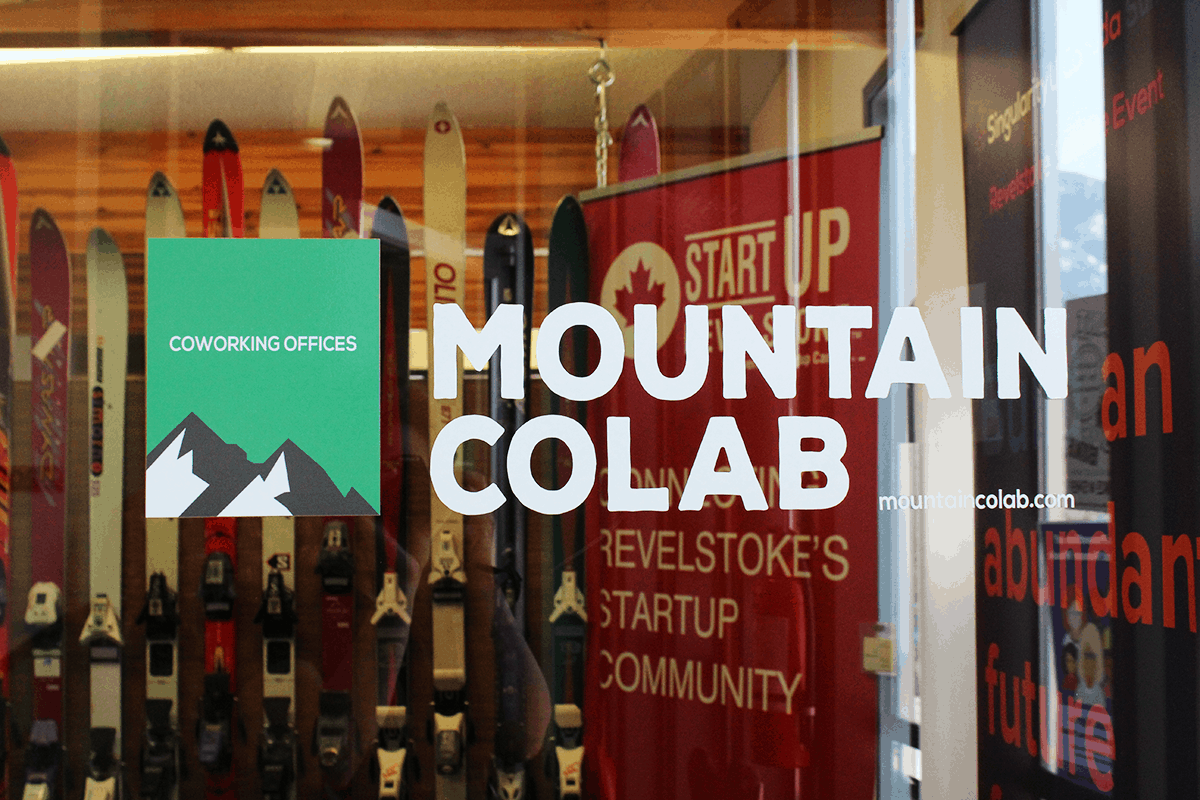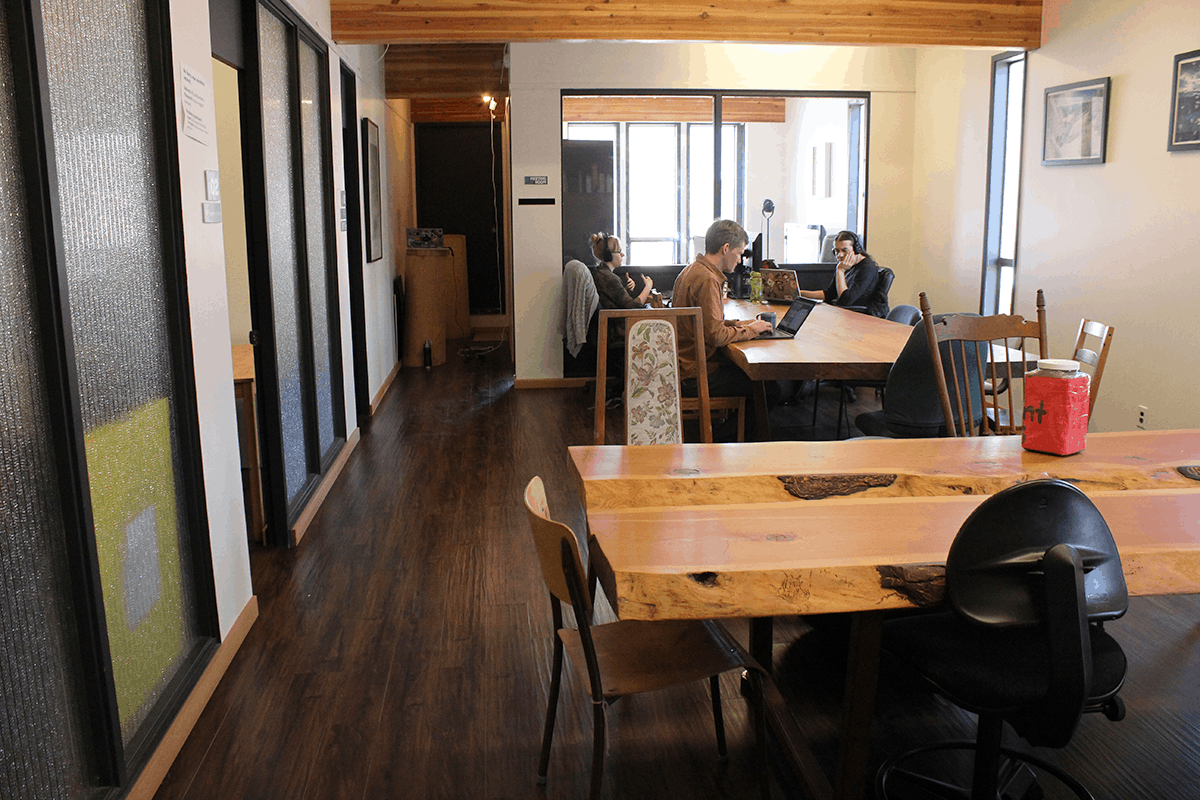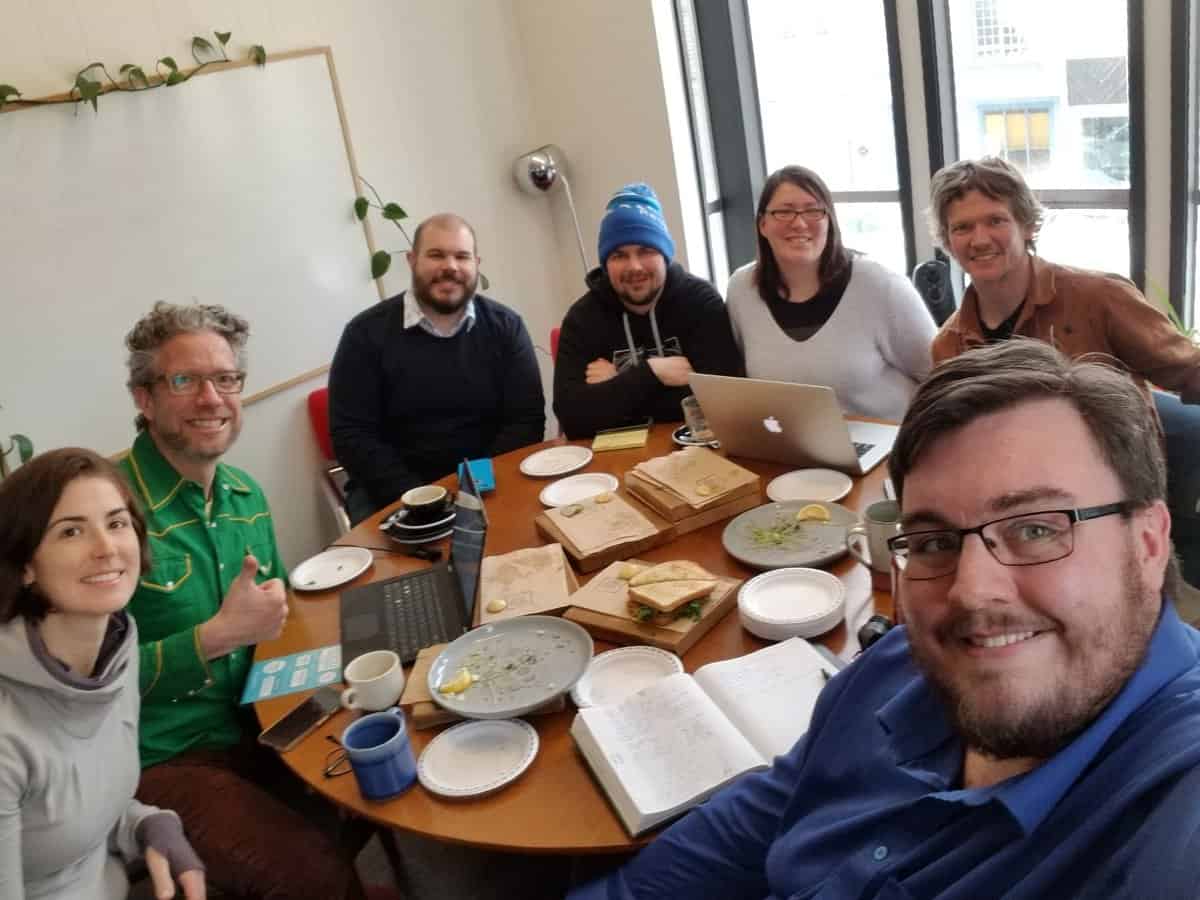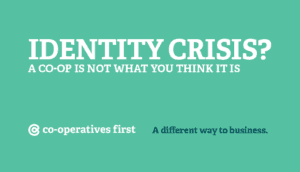The Mountain CoLab co-operative
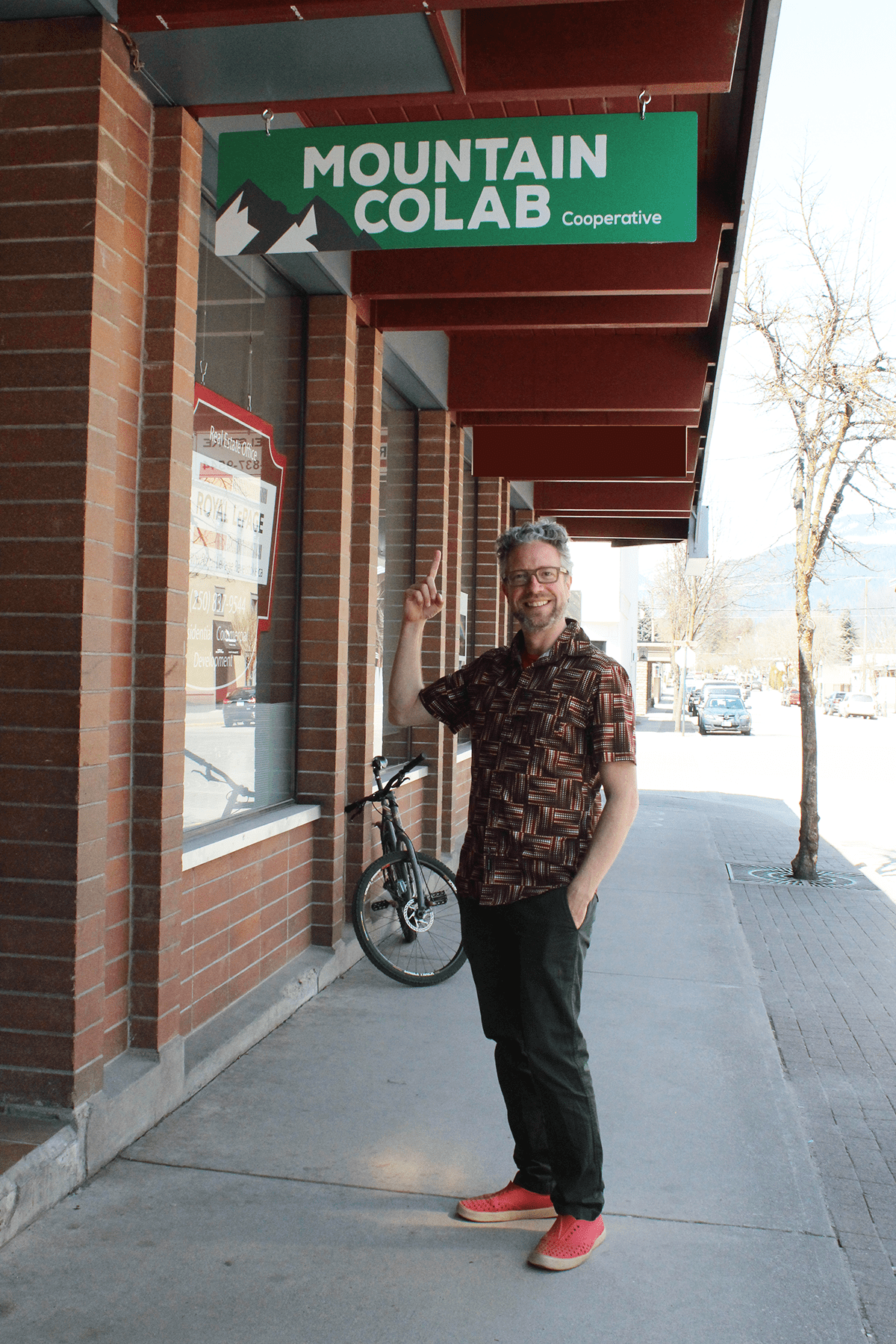
This increased demand for workplace flexibility has inspired a boom in co-working spaces designed to attract freelancers, entrepreneurs, and digital nomads.
RELATED: How to become the most connected community in Canada
Co-working facilities usually consist of a mix open spaces and offices, with various seating and desk options. Co-workers can often choose the level of service they want to pay for – more for a private office, less for a dedicated desk in a common area, and less still for the ability to show up and use whatever space is available. Often you’ll find free coffee and snacks, shared office amenities like printing, and networking opportunities that promote the sharing of ideas and projects.
Co-working co-opportunity
The biggest co-working space company, WeWork, has locations in 22 countries, but independently-run, location-specific spaces are popping up all the time. The Wall Street Common, where Co-operatives First’s office was once located, offers a beautiful and functional co-working area.
Given the collaborative nature of co-working spaces, a co-working co-operative seems a natural choice, right? The co-founders of Mountain CoLab in Revelstoke, BC certainly think so.
Nestled in the Rocky Mountains, Revelstoke attracts people of all professional backgrounds. Many people move here for the stunning scenery, quality of life, and ample opportunity for outdoor activities.
This Rocky oasis is home to the world-class Revelstoke Mountain Resort, which attracted Jean Marc La Flamme to the small BC city of approximately 7,000.
La Flamme is one of 10 Mountain CoLab co-founders. Like many other co-working spaces, Mountain CoLab is designed for “entrepreneurs, freelancers, non-profits and remote employees to work, meet, play and network.” Initially starting as a private co-working company, the founders decided to become a co-op after considering a range of business models. Their goal was to offer “cheap and cheerful” facilities.
Dream big. Start modestly.
Beginning modestly, the founders of the organization started three years ago with Co-lab 1, located on the second floor of a building in downtown Revelstoke. They expanded to Co-lab 2 by adding space across the hall from the original location, and can now offer eight private offices and two open areas with desk and table space.
Business is good, and the organization now has 130 members (50 of whom are full-time), with huge potential for growth.
Demand for co-working space in Revelstoke is growing, and the co-op is eager to expand. Over 100 people are on a waitlist, and the potential for short-term, seasonal workers to use the space has no limit.
Plans for Co-lab 3 and 4 are in the works. The third iteration is set to open this month at the Revelstoke Business and Visitor Information Centre, and future plans include the addition of a more maker-space focused facility.
“The birth of the ski resort was the reason I came here and a lot of people have come here,” said La Flamme. Many start by working in the service industry, he said, but quickly miss the professions they’ve left behind and look for ways to re-incorporate them into their lives.
This is now possible, La Flamme said, because “everybody can work off a laptop wherever.”
“It’s the fabric of Revelstoke that are here as members working together.”
Mountain CoLab hosts engineers, biologists, IT folk, builders, planners, and media, among others.
Create a community
“It’s the fabric of Revelstoke that are here as members working together, colliding and creating new business, partaking in initiatives, and onwards,” he said.
In order to keep to the mission of providing space at a low cost, the co-op is run entirely by volunteers. The positive impact is noticeable. Compared to many other co-working spaces, the barriers to entry are minimal: a common share in the co-operative costs only $5, a shared desk in the common area is $65 per month, and a shared private office costs $130.
The co-op had some angel investors to help get it started and plans to host annual fundraisers. To keep the momentum going and costs low, they also plan on applying for grants.
Members of the co-op are supportive, but they also want more opportunities to collaborate and some additional services. For La Flamme, this also means a bigger focus on membership engagement. Given the volunteer nature of the co-op, improving the business means having active members.
“If there’s one thing we would have done differently,” he said, “it’s gotten on this whole co-op knowledge and mentorship bandwagon on day one, not year three.”
“[Members] come out to support events and they support each other and that’s kinda how we set it up,” La Flamme said. “They volunteer, they support each other, but now I have to say we need your help to do this, and who wants to step up and help us along? …All of them would say yeah, we’ll do whatever, tell us what to do.”
Continuous improvement
Co-operatives First has been working with Mountain Co-lab to help the board formulate their plan for future growth. La Flamme recommended that, if other groups are interested in starting co-operatives, they seek out information and training at an early stage.
“If there’s one thing we would have done differently,” he said, “it’s gotten on this whole co-op knowledge and mentorship bandwagon on day one, not year three.”

